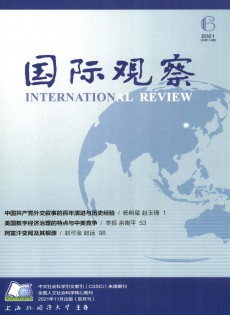Impact of climate changes on the insurance market
IF 0.6
Q4 ECONOMICS
引用次数: 0
Abstract
The problem of climate change is a current social problem in today's civilization. At the same time, it is an ecological problem, but also an economic, political, social, cultural, health problem, etc. It is a global environmental problem, and for this reason we are talking about global climate changes, which affect states, nations, continents, regardless of where they are and what their degree of guilt is in creating and maintaining these changes. The problem of climate change is not easy to define within the framework of only one science, regardless of whether it is natural or social sciences. Bearing in mind the causes and consequences of this social and natural problem, as well as the survival of the natural world and civilization, the question of the context and basis in which this problem can be thought through scientifically also naturally arises. According to all the indicators of various researches of insurance companies, the insurance sector is increasingly involved in the management of risks related to climate change. The issue of determining the potential short-term and long-term effects of climate change on the operations of insurance and reinsurance companies is a priority and the ultimate goal is to find measures to minimize risks and damages. That is why the insurance sector must include climate change in its risk assessment and in that way adequately adjust its product, i.e. insurance.气候变化对保险市场的影响
气候变化问题是当今文明中的一个社会问题。同时,它是一个生态问题,也是一个经济、政治、社会、文化、卫生等方面的问题。这是一个全球性的环境问题,因此我们谈论的是全球气候变化,它影响到国家、民族、大陆,不管它们在哪里,也不管它们在造成和维持这些变化方面负有多大的责任。无论是自然科学还是社会科学,都不容易在一门科学的框架内定义气候变化问题。考虑到这一社会和自然问题的原因和后果,以及自然界和文明的生存,科学地思考这一问题的背景和基础问题也自然产生了。从保险公司的各种研究指标来看,保险业越来越多地参与到与气候变化相关的风险管理中。确定气候变化对保险和再保险公司业务的潜在短期和长期影响的问题是一个优先事项,最终目标是找到将风险和损害降到最低的措施。这就是为什么保险部门必须将气候变化纳入其风险评估,并以此充分调整其产品,即保险。
本文章由计算机程序翻译,如有差异,请以英文原文为准。
求助全文
约1分钟内获得全文
求助全文

 求助内容:
求助内容: 应助结果提醒方式:
应助结果提醒方式:


